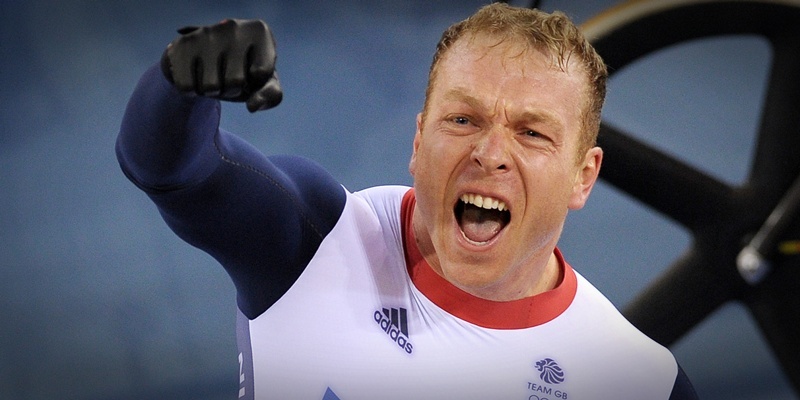Sir Chris Hoy’s success in the Olympics is a metaphor for the benefits that come from the Union, former Prime Minister Gordon Brown has claimed.
In his first major intervention in the constitutional debate that has dominated Scottish politics for more than a year, the Kirkcaldy and Cowdenbeath MP said the victories of Team GB exemplified how the different nations of the United Kingdom thrive when they work together.
Speaking on Monday, a day after the closing ceremony of London 2012 Olympics, Mr Brown threw down the gauntlet to Scottish nationalists by insisting the ”pooling and sharing of resources” between England, Scotland, Northern Ireland and Wales had been the key to their success.
Giving the Donald Dewar lecture at the Edinburgh Book Festival, he said: ”People understood that if they are in trouble in one part of the kingdom you have got to help in another part of the kingdom. Perhaps that’s one of the lessons I take from the Olympics Chris Hoy has made the point for me. I don’t have to make it for myself.
”At the Olympics it is pretty clear to us that by the pooling of resources in say cycling we managed to do what if you just divided the money and gave a 10th to Scotland, a 10th to Yorkshire and so on and so forth we would not have achieved the same results as we did through the pooling of resources.”
Mr Brown said Scots currently enjoy the benefits of a range of services, including the NHS, the BBC and the armed forces, which have derived their strength from working across the UK. He said these combined efforts had also helped reduce inequalities in wealth and opportunities between the four nations.
Mr Brown also revealed that he would support more powers for the Scottish Parliament, but believes giving Edinburgh full financial control would lead to ”higher taxes for Scotland”.
First Minister Alex Salmond is thought to be considering including a second question on more devolution in the referendum planned for autumn 2014.
But Mr Brown warned: ”If you break up the fiscal union, if you break up the sharing and pooling of resources across the UK, then it’s clear that you will either have to cut public expenditure massively beyond what is being done at the moment, or you will have to tax the Scottish people more.
”Given that there’s a pooling and sharing of resources at the moment, there is no escape from the fact that if you want the same level of services in Scotland you will have to raise taxes in Scotland.”
But the SNP’s Dundee East MP Stewart Hosie dismissed the speech, insisting Scotland would be better off as an independent nation.
”What Scotland needs is the job-creating powers of an independent parliament, so that we can take the key decisions needed to boost growth and employment in the Scottish economy,” he said.
”The question that Gordon Brown and the anti-independence parties need to answer is why they prefer these key powers over jobs and the economy being held by a Tory-led government at Westminster rather than by the Scottish Parliament which is 100% accountable to the people of Scotland.”Progress in talksThere was some progress on Monday in discussions between the Scottish and UK governments on how the referendum will be conducted.
The two administrations have been at loggerheads over whether the Scottish Parliament has the legal power to hold the vote.
It was agreed that a Section 30 order, which would transfer the legal power from Westminster to Holyrood, would need to be signed off by February to allow the SNP to hold the referendum as planned in 2014.
Photo by Tim Ireland/PA Wire
